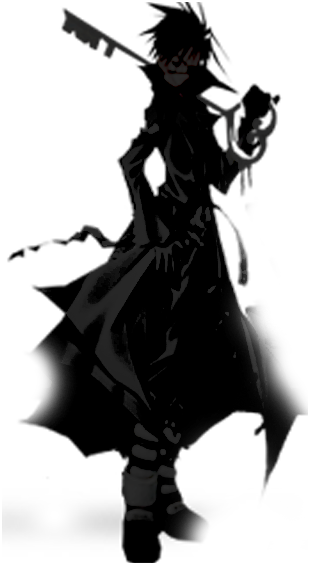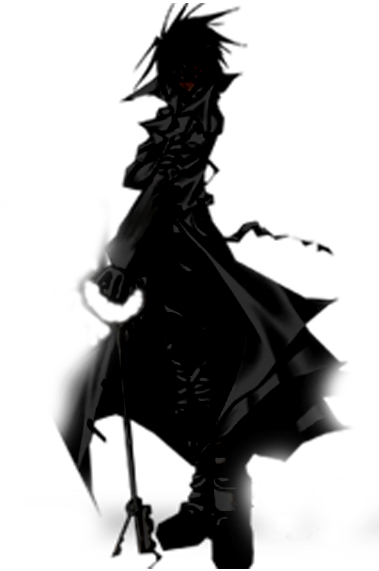Hurtled into the chaos you fight, and the world will shake before you.
Closing CommentsThere are a few things I'm certain of in life: Darkspawn must die, dragons must die, and, from a technical perspective, Dragon Age II is the best game in BioWare's fantasy role-playing franchise. The gameplay, user interfaces, and conversation system have all been modified to the point where the game is much more functional and fun than before. Yet despite all these improvements, there are still some issues with the story and setting in the sequel.
To kick things off, the plot is told through a framed narrative, much like the movie The Princess Bride. It's known that your character, Hawke -- a male or female human mage, rogue, or warrior -- will eventually become the Champion of Kirkwall. It's also clear that the world is on the cusp of war, and the Chantry, the main religious faction in the Dragon Age universe, is coming apart at the seams. What isn't known is your amount of involvement in the chaos, and why a Chantry seeker named Cassandra is interrogating a former friend of yours, a dwarf named Varric. It turns out that your part in this play is major, and you'll figure it out as you go along.
Varric dutifully recites the tale from start to finish, complemented by stunning water-color cutscenes to add an interesting visual element to the dwarf's clever storytelling. It's easy to forget that what you're doing is technically in the past, so it's fun to discover Varric's embellishments when they pop up, such as Bethany's giant rack at the start of the game, which later goes down to a normal size.
Most role-playing games depict a prevailing evil presence that only your hero can defeat after an epic journey across the world. You can imagine my surprise, then, when Dragon Age II threw most of those ideas out the window and instead opted to document the political struggles of the city of Kirkwall. It's a gutsy move to say the least – this is a 30-hour game and most of it is spent in and around the city looking at similar architecture. I appreciate that there are distinct parts of Kirkwall like Hightown (a bright, clean spot for nobles to hang out) and Darktown (a dingy, underground area), but there's so much to explore in the Dragon Age universe that it's rather puzzling to set an entire adventure in just one area.
I thought the narrative style was to allow for branching storylines, but aside from a few impactful choices, it's actually fairly linear, which is disappointing. Another problem is that the ending is a cliffhanger, which makes it feel more like a prologue rather than a standalone title. The plot is very entertaining though and chockfull of crazy moments that will make you go "OMG" and "WTF." Occasional slow spots can make what you're doing feel pointless, but the ending makes it clear that Hawke's time in Kirkwall is incredibly important to the Dragon Age canon.
Although Origins featured a silent Hero of Ferelden, Dragon Age II offers a fully-voiced Champion. I prefer chatty main characters, so I'm pleased that Hawke was given a voice in the sequel. Talking to folks will cause a wheel of dialogue options to appear that looks similar to what BioWare uses in Mass Effect. The difference is that Dragon Age II sports icons that help guide your decision making.
Hawke can be aggressive, peaceful, sarcastic, romantic etc., but there are almost too many varying icons to represent all the different feelings you can express. Who would assume that a purple gem would mean charming? If you don't check out the manual, you may get confused by odd choices like that. A nice addition is that Hawke will spout off different one-liners in cutscenes that you have no control over depending on your conversation tendencies. It's a cool feature, as it really makes your character seem like a unique individual.
One of the best things about Dragon Age is stopping and listening to what your companions have to say. That remains true in the sequel, where the background chatter between party members is often hilarious and sometimes heartwarming. It adds authenticity to their personalities despite their occasionally stiff movements. Assembling a team isn't a light decision in Dragon Age II as your companions aren't just there to aid you in battle. They can also partake in conversations, opening up new dialogue options. Anders might be able to tell if someone is possessed by peeking into the Fade (the spirit realm), Varric can sweet-talk you out of sticky situations, and Aveline can threaten like nobody's business when the terms are right.
Three rogues walk into a bar and...kill everyone.
Of course, you do need to consider their combat abilities as well, because a team full of mages probably isn't going to get very far. The appeal of the combat system in Dragon Age II is its versatility. You can easily play it like an action title and mash buttons on lower difficulty levels, but if you prefer to think about what you're doing, you can crank up the difficulty, pause the game, and issue commands for individual team members. It's more difficult to direct complex strategies on consoles due to imprecise movements with the analog sticks, but it's easy with a keyboard and mouse, though PC users will need to get used to the new camera that doesn't zoom out quite as far as the one in Origins. Still, taking on foes in any version of Dragon Age is really entertaining – attack animations have been sped and spiffed up and slicing through an enemy with a sword feels satisfying.
The only trouble is your buddies aren't smart enough to play Dragon Age II like a straight action game, despite BioWare's claim that you can. Unless you set up specific instructions in individual characters' tactics menus, they won't take healing potions (and even then they might not do it). Tactics are fairly easy to set up, so that's not the end of the world, but you'll still need to keep a careful eye on your party's health to make sure they don't go kamikaze on you.
At first glance it's easy to see that Dragon Age II is, for the most part, a beautiful game, especially on the PC. The trade-off is that the assets are reused a lot. As I mentioned earlier, you're in the same city and surrounding areas for the entire game and it can get tiresome to see the same sights. Dungeons often look identical and even the mini-map doesn't change – the only variable is which pathways are blocked off. It's a major bummer that every time you try to explore, the places you discover feel familiar.
Every modification to the gameplay and structure of Dragon Age II is a clear improvement over the previous game. The combat is more responsive and bloody, you don’t need to fight the inventory system anymore, and conversations are more engaging thanks to the adapted Mass Effect wheel. There are downsides though; the semi-linear story and repetitive environments have a negative effect on what is otherwise a great role-playing game. Despite these complaints, Dragon Age II is a game I’m eager to replay.
Results 1 to 1 of 1
-
03-09-2011 #1
VIP Member







Join Date : Dec 2010
Location : Somewhere on the outskirts of Hell.
Age : 41
Posts : 1,940
ArrayIGN Review: Dragon Age II 8.5 Great
Similar Threads
-
[YouTube] Dragon Age Inquisition Review
By Lady Esdeath in forum Youtube FamousReplies: 1Last Post: 11-11-2014, 08:17 PM -
IGN Review: L.A. Noire 8.5 Great
By jkipp82 in forum Xbox 360 Game ReviewsReplies: 5Last Post: 11-13-2011, 01:11 PM -
IGN Review: Bulletstorm 8.0 Great
By jkipp82 in forum Xbox 360 Game ReviewsReplies: 2Last Post: 09-11-2011, 11:57 PM -
IGN Review: Dirt 3 8.5 Great
By jkipp82 in forum Xbox 360 Game ReviewsReplies: 0Last Post: 05-26-2011, 03:56 AM -
Gamespot Review: Dragon Age II 8.0 Great
By jkipp82 in forum Xbox 360 Game ReviewsReplies: 0Last Post: 03-09-2011, 03:17 AM













